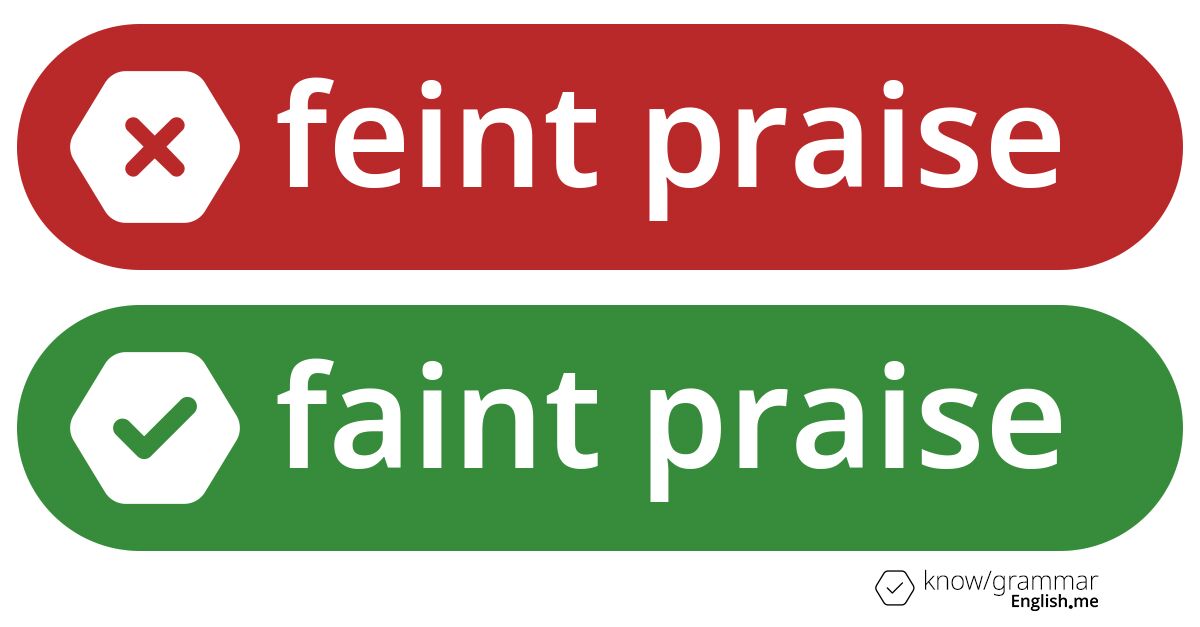Faint praise for "feint praise": a slip of the tongue
Reviewed and edited by  Lloyd Cooper 03/11/2024, 20:23
Lloyd Cooper 03/11/2024, 20:23
English.me team member
 What kind of error is it?
What kind of error is it?

It's a malapropism, where a word is confused with a similar-sounding word.
 Why do people make this mistake?
Why do people make this mistake?
People mix up "feint" and "faint" because they sound similar, but "feint" is related to a deceptive move, whereas the correct word "faint" refers to something lacking in strength or intensity.
 What is correct?
What is correct?
"Faint praise" is the correct term, meaning praise that is so weak or insubstantial that it can be construed as criticism.
 Examples of correct usage
Examples of correct usage
- His response was met with faint praise from the committee.
- The book only received faint praise from the critics.
- She offered faint praise for the meal, saying it was "not the worst she’d ever had."

 English
English español
español française
française italiano
italiano deutsche
deutsche 日本語
日本語 polski
polski česky
česky svenska
svenska Türkçe
Türkçe Nederlands
Nederlands